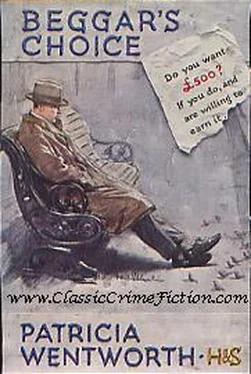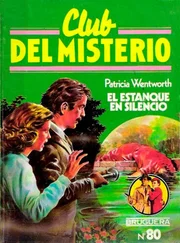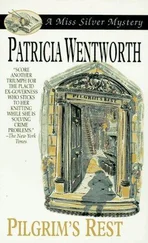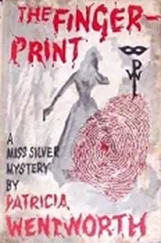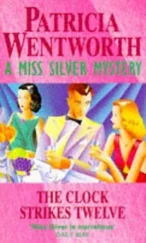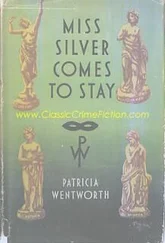Patricia Wentworth - Beggar’s Choice
Здесь есть возможность читать онлайн «Patricia Wentworth - Beggar’s Choice» весь текст электронной книги совершенно бесплатно (целиком полную версию без сокращений). В некоторых случаях можно слушать аудио, скачать через торрент в формате fb2 и присутствует краткое содержание. Жанр: Детектив, на английском языке. Описание произведения, (предисловие) а так же отзывы посетителей доступны на портале библиотеки ЛибКат.
- Название:Beggar’s Choice
- Автор:
- Жанр:
- Год:неизвестен
- ISBN:нет данных
- Рейтинг книги:5 / 5. Голосов: 1
-
Избранное:Добавить в избранное
- Отзывы:
-
Ваша оценка:
- 100
- 1
- 2
- 3
- 4
- 5
Beggar’s Choice: краткое содержание, описание и аннотация
Предлагаем к чтению аннотацию, описание, краткое содержание или предисловие (зависит от того, что написал сам автор книги «Beggar’s Choice»). Если вы не нашли необходимую информацию о книге — напишите в комментариях, мы постараемся отыскать её.
Beggar’s Choice — читать онлайн бесплатно полную книгу (весь текст) целиком
Ниже представлен текст книги, разбитый по страницам. Система сохранения места последней прочитанной страницы, позволяет с удобством читать онлайн бесплатно книгу «Beggar’s Choice», без необходимости каждый раз заново искать на чём Вы остановились. Поставьте закладку, и сможете в любой момент перейти на страницу, на которой закончили чтение.
Интервал:
Закладка:
When I’d got rid of the stuff, I felt a good deal better. I think I’d really been afraid that something might argue me into keeping it. Of course I should have to do something about a job at once. Last night the prospects of my getting one had seemed particularly murky, but now I didn’t think they looked so bad.
One of the people I had met a few days ago was Baron, whose young brother was at school with me. I’d never known the elder Baron particularly well, but he was very affable, and after I’d lunched with him and he’d told me all about Puggy and the job he’d got in Brazil, he said,
“You’re fixed up, I suppose, or you might join him. You’re just the sort of chap he’s looking for.”
Well, that was a big vague, but I thought I’d go and see Baron and ask what about it. Whatever happened, Z.10 had done me one good turn-he’d pushed me into going about and meeting people again. I’d got to the point where I’d run a mile if I thought I saw a pal.
I rang Baron up, and found he’d gone to Scotland, so I got his address and wrote to him. I also wrote to a man called Hartness, who had been very friendly, and who, I knew, had a lot of irons in the fire.
I went out and posted the letters.
When I came in, I met Fay on the stairs between her landing and mine. I hadn’t time to wonder what had taken her upstairs, because she began to explain the minute she saw me:
“I’ve been up to your room. You needn’t be frightened- there weren’t any love-letters lying about. Car, you really oughtn’t to glare like that-I haven’t stolen anything.”
She got as far as that, speaking in a sort of nervous rush, and then, to my surprise, she blushed, a real honest, unbecoming blush, and dashed past me into her own room.
Any other time, I suppose, I should have gone after her and asked her what she was playing at; but I was still angry. She had told me a lot of perfectly pointless lies and then tried to make out that it was something to do with me. I thought I’d cool down a bit before I had it out with her and told her what a little rotter she’d been.
I had hardly got to the top of the stairs when I heard Mrs. Bell calling me. She was halfway up the bottom flight, puffing and panting and waving an orange envelope.
I ran down, of course.
“Another of those there telegrafts! They’ll be keeping a messenger special for you if it goes on like this,” she said.
I wondered what on earth Z.10 could be wiring to me about. But the telegram wasn’t from Z.10.
It was from Isobel.
It said, “Must see you. Very urgent indeed. Meet me Olding Crescent Putney eight-thirty to-night without fail. Isobel.”
I stared and stared at the words. First they didn’t seem to mean anything, and then they seemed to mean a great deal too much, and then they went blank and didn’t mean anything at all.
I knew Mrs. Bell was talking, but I didn’t hear a word she said.
Presently I said, “No, there isn’t any answer,” and I went upstairs to my room.
Fay’s door was a little open as I passed, and I had a sort of feeling that she was watching me. I went up two steps at a time. I didn’t feel in the least like talking to Fay.
I shut the door of my room and sat down at my table with the telegram spread out in front of me. The thing just took my breath away.
What did Isobel know about Olding Crescent?
Why did she want to see me urgently-very urgently?
And why eighty-thirty?
It would be quite dark-black dark under those overhanging trees.
Why did Isobel want me to meet her in the dark?
I sat there and tried to think of answers to these questions. What made it difficult was that when I thought about meeting Isobel, Isobel herself just swamped everything else. Trying to think about the other things was like trying to hear street noises outside when an organ is playing-you know the noises are there, but the music just floods over and through them and blots them out.
XXX
The anniversary of Mr. Carthew’s wedding-day began as it had begun for the last ten years or so. He came down to breakfast at a quarter past nine and was met by his wife’s niece, Anna Lang, who offered him an affectionate embrace, and a bouquet of carnations and maidenhair, very tastefully arranged and all ready to put into a large silver loving cup which stood on the sideboard immediately below Mrs. Carthew’s portrait.
Corinna Lee found the little ceremony “perfectly sweet.” The flush on Mr. Carthew’s cheek and the slight moisture in his blue eyes touched the romantic side of her nature to its very core. She watched appreciatively whilst the old gentleman himself put the flowers in water, thrusting them down rather awkwardly, so that some bright drops splashed up and trickled down the massive silver cup. When he stepped back and surveyed the portrait, she surveyed it too.
Mrs. Carthew had been painted in extreme youth. The portrait showed a girl of seventeen looking down at her new wedding-ring. Anna Lang was this girl’s niece and namesake, but she bore her no resemblance. Annie Carthew, who had been Annie Lang, was a thin, pale slip of a thing with big childishly blue eyes and a pretty, timid smile. It was very difficult to realize that she ought to be sitting here at the foot of the breakfast table, an old lady to Cousin John’s old gentleman. She was just the picture of a girl, with a bunch of pink carnations stood up in front of her because it was her wedding-day.
Corinna found it touching but remote. It seemed odd to sit down to sausages and bacon, and to see Cousin John make a most excellent breakfast.
After breakfast the ceremonies of the day proceeded. Corinna’s presence undoubtedly gave them a zest which they might otherwise have lacked. Mr. Carthew felt a good deal of pleasure in narrating the events of his wedding-day to some one who had never listened before to the story of how Annie Lang had walked to church. “It’s only a step, and the village children had strewed the whole way with colored leaves from the hedges-the leaves turned early that year-and they stood in two rows for her to pass through them. They threw rose-leaves at her, and some of the red ones marked her dress, and the first thing that she said to me when she came out of church was, ‘Oh, there’s such a stain on my dress-and what will Mamma say!’ And I said”-Mr. Carthew here thumped the table,-“I said, ‘Your mother don’t matter any more now, my dear. I’m the one that’ll put you in the corner when you spoil your frocks.’ ” He leaned back laughing. “Her mother was very strict with all her children, but a very good mother for all that. Children were brought up in those days-they didn’t just do what they liked.”
“There must have been something kind of soothing about being brought up,” said Corinna. “Now I’ve had the hardest kind of time bringing myself up and bringing Poppa up. I think the old times must have been real restful. What a pity we can’t go back!”
Mr. Carthew gazed at her suspiciously. It was a fine warm morning. She was wearing a pale gray sleeveless frock. Her arms and neck looked as soft and white as milk; her gray eyes were as clear and innocent as a baby’s; her small red upper lip just showed a glimpse of very white teeth.
“You don’t want to go back. Nobody does. You like having your own way-don’t you?”
“Don’t you?” said Corinna.
“My own way? When you get to my age you don’t expect to get your own way-and it wouldn’t be any good if you did, because you wouldn’t get it, my dear.”
They were in the library. It was not a very studious-looking room. There was, to be sure, an old-fashioned roll-top desk, but the table at which he sat was strewn with picture papers and light novels. The walls gave more room to sporting prints than to bookshelves, and the chairs were less conducive to mental exercise than to sleep. Over the mantelpiece was another, and a later, portrait of Mrs. Carthew. It showed her tightly laced in black satin with a stiff fuzzy fringe under a hair-net. The small, pale features had a meek, obstinate expression. One felt that this was a lady who would say “Yes, John,” and “No, John,” and would then continue with meek pertinacity upon a predetermined way.
Читать дальшеИнтервал:
Закладка:
Похожие книги на «Beggar’s Choice»
Представляем Вашему вниманию похожие книги на «Beggar’s Choice» списком для выбора. Мы отобрали схожую по названию и смыслу литературу в надежде предоставить читателям больше вариантов отыскать новые, интересные, ещё непрочитанные произведения.
Обсуждение, отзывы о книге «Beggar’s Choice» и просто собственные мнения читателей. Оставьте ваши комментарии, напишите, что Вы думаете о произведении, его смысле или главных героях. Укажите что конкретно понравилось, а что нет, и почему Вы так считаете.
